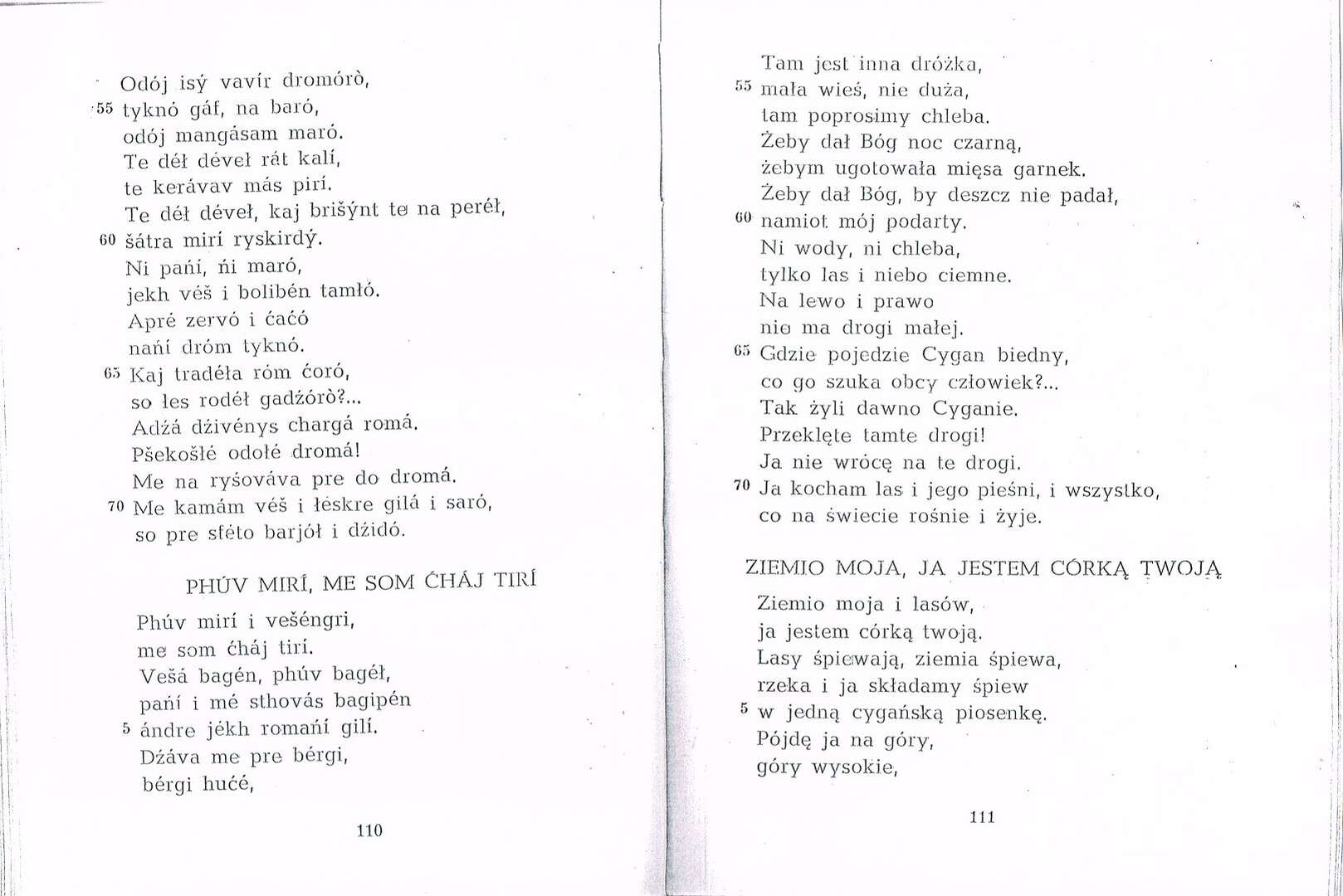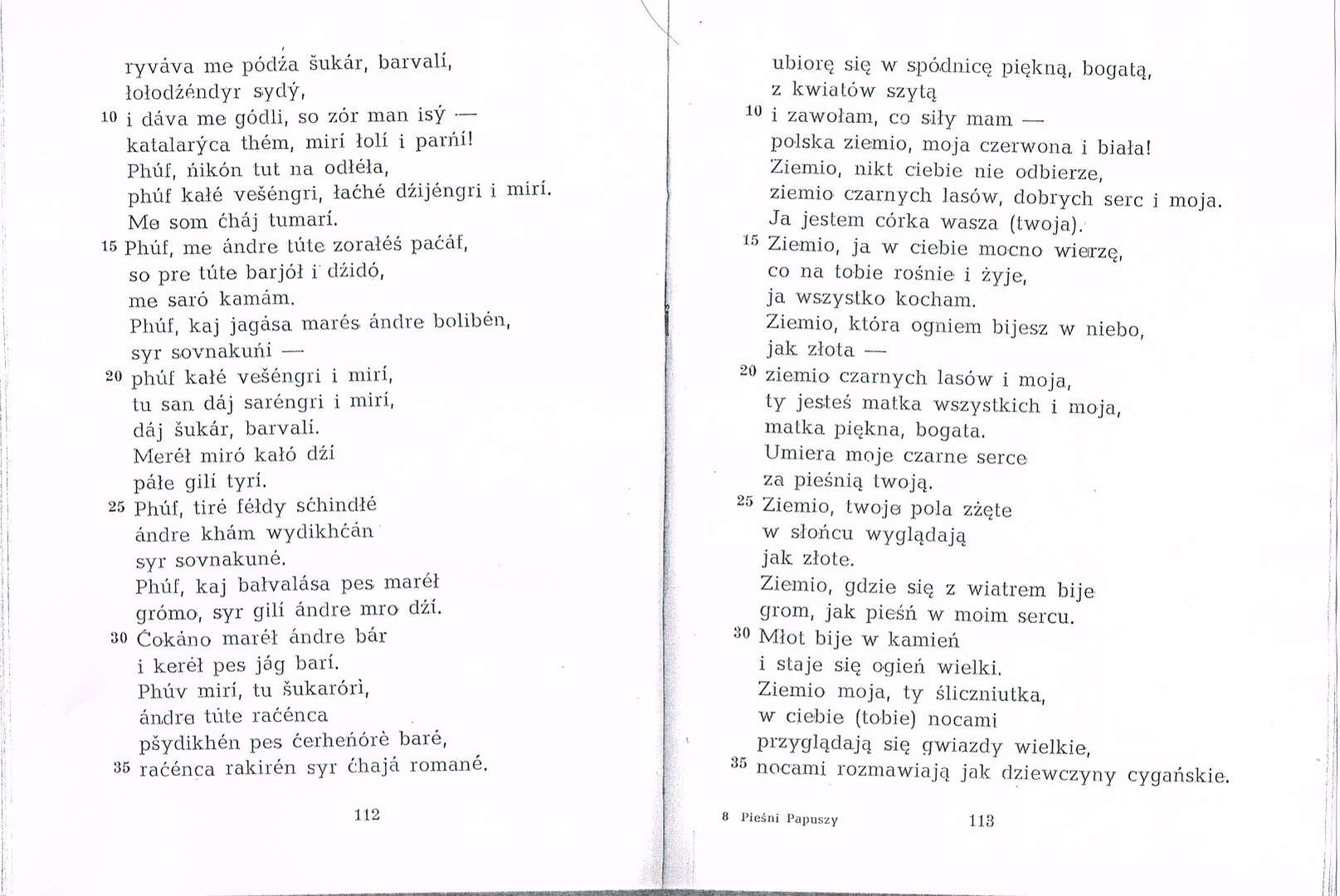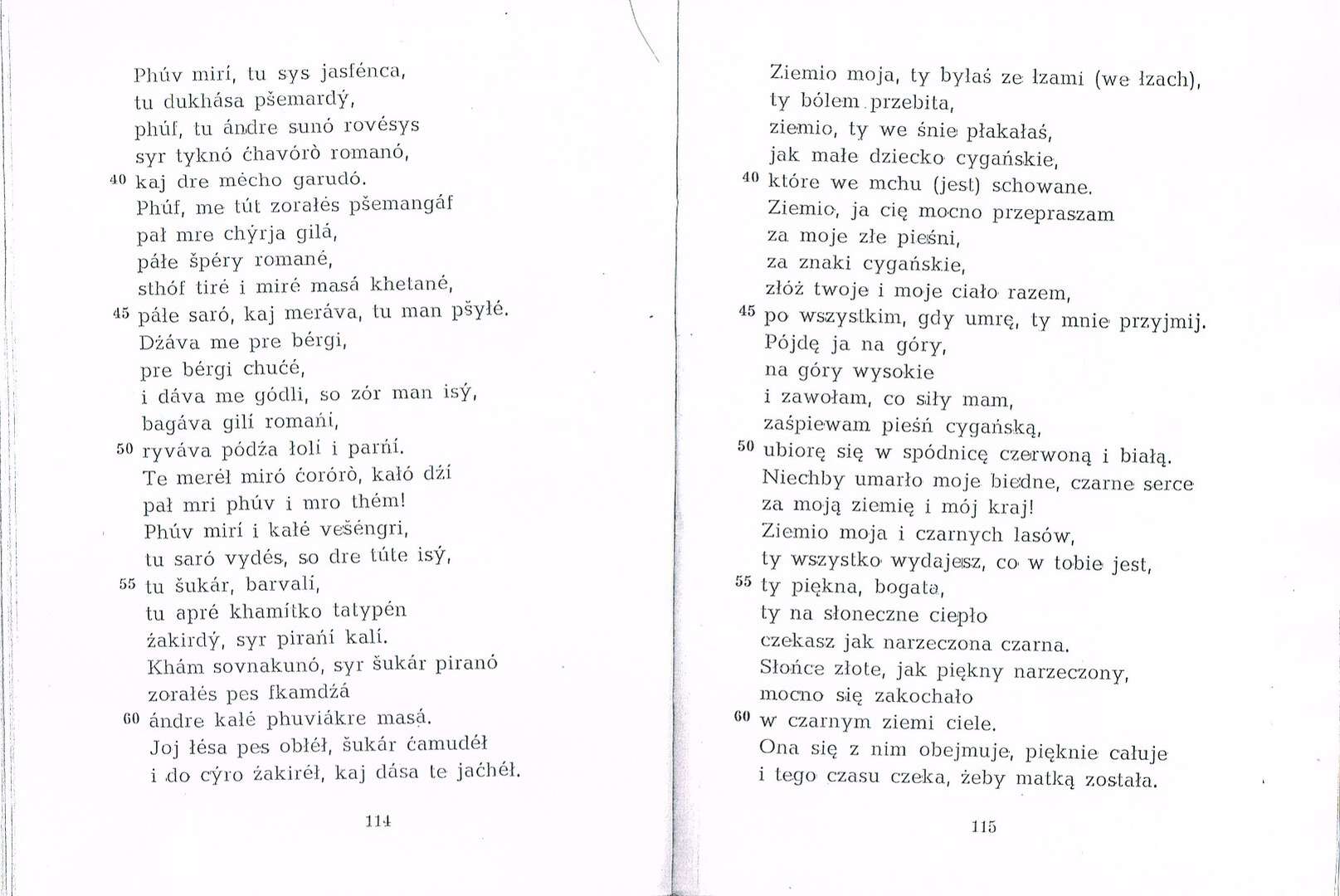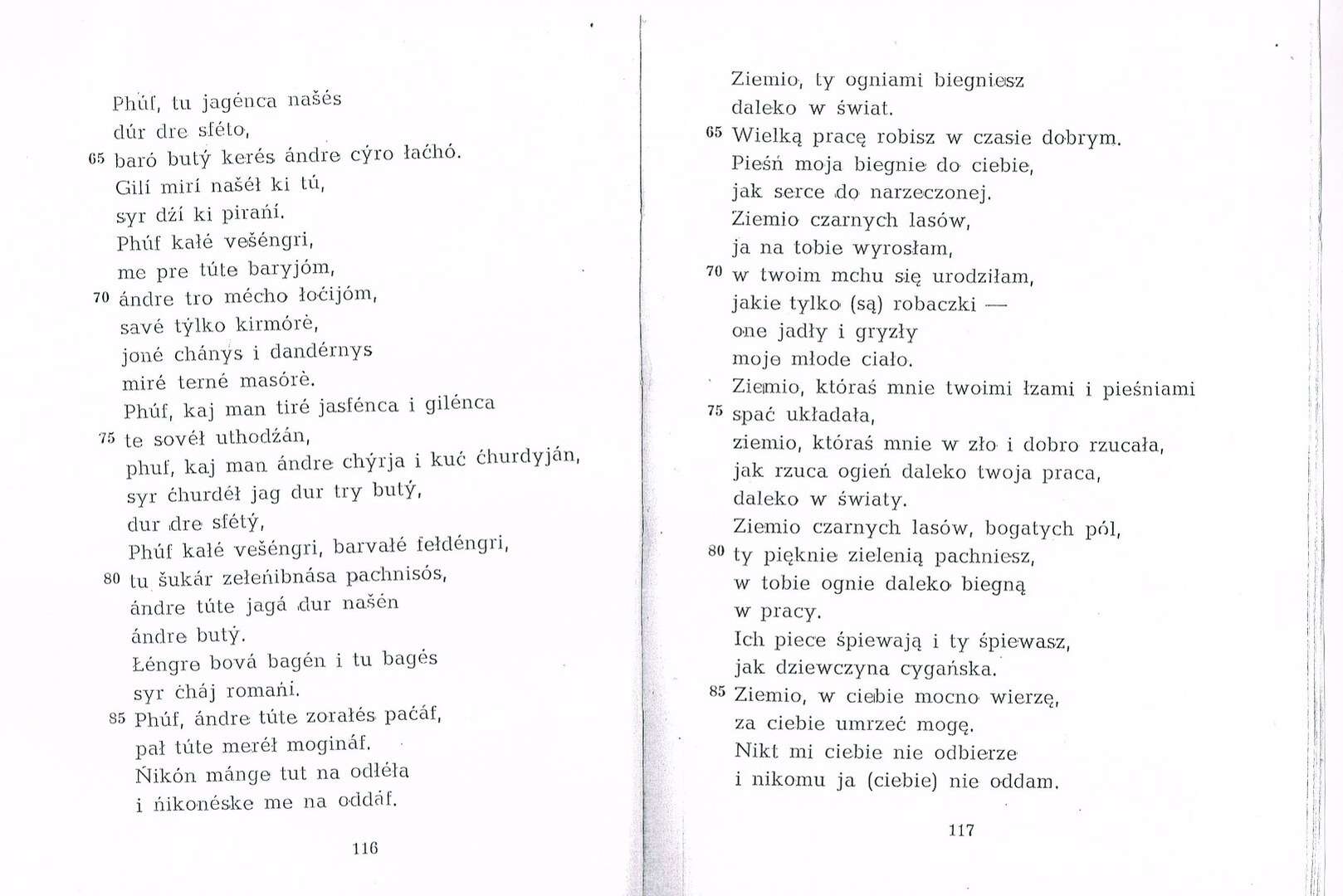The poem ‘Phúv mirí, me som ćháj tiri’ /’Ziemio moja, jestem córką twoją’ [My Earth, I Am Your Daughter] was written in Romani in 1952. To understand the poem correctly, it is necessary to recall the political situation of the Polish Roma after the Second World War. The gradual forced settlement of Roma by the Communist government in Poland from the 1950s onwards and the associated process of adapting to the majority society demanded the emphasis of Polish national identity among the Roma.
The poem is made up of numerous appeals addressed to the earth. The earth stands metonymically for nature, the former homeland of the lyrical ‘I’. The relationships man-nature and man-nation overlap in the poem. Here Papusza uses the dual meanings of the Polish word ‘earth’ (‘soil’ and ‘country’) and makes a patriotic declaration (‘Polish soil, red and white!’). The poem can be interpreted as special kind of subversion: although in some fragments the bond between the lyrical ‘I’ and Polishness is obvious, the final message goes beyond the boundary of the nation and addresses the relationship of mankind to nature.
Pieśni Papuszy [Papusza’s Songs] (1956) are available in three linguistic variants. The original texts in Romani were translated by Jerzy Ficowski into a literary Polish. These translations were the basis for the reception and aesthetic appraisal of Papusza’s works. Furthermore, as editor of the book, Ficowski juxtaposed the Romani originals with literal Polish translations to offer readers an insight into Romani and allow them to follow the poetic changes that were made in the literary translation into Polish.
Source
Wajs, Bronisława [Papusza]. 1956. Pieśni Papuszy. Papušakre gila. Wiersze w języku cygańskim. Przełożył, opracował, wstępem i objaśnieniami opatrzył Jerzy Ficowski. Warsaw, Wrocław: Wydawnictwo im. Ossolińskich, pp. 110–17 [Romani and literal Polish translation]











